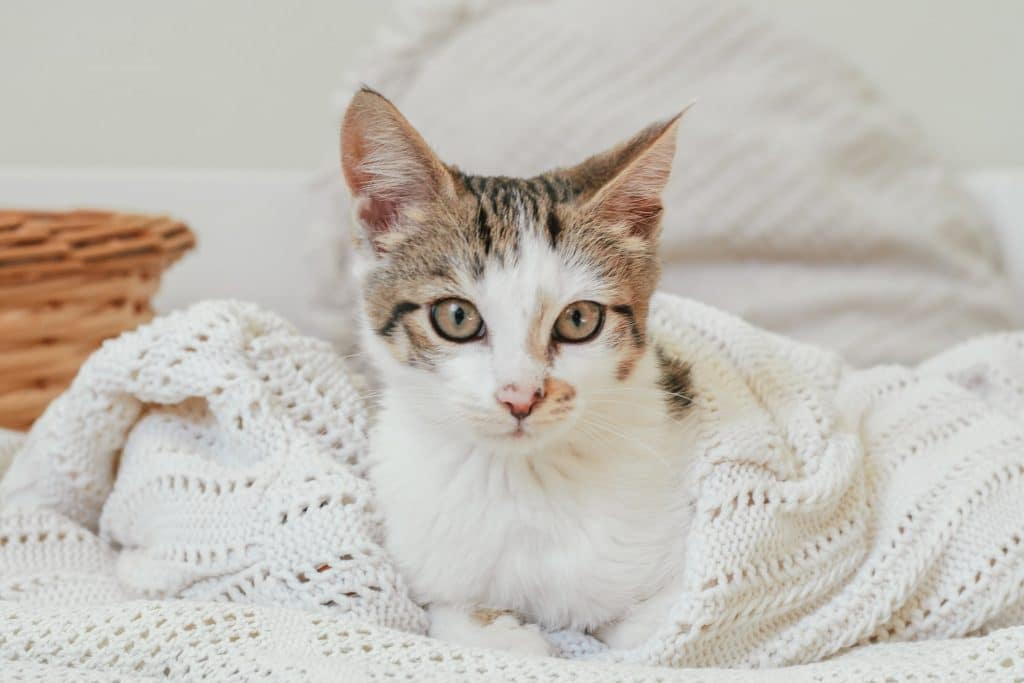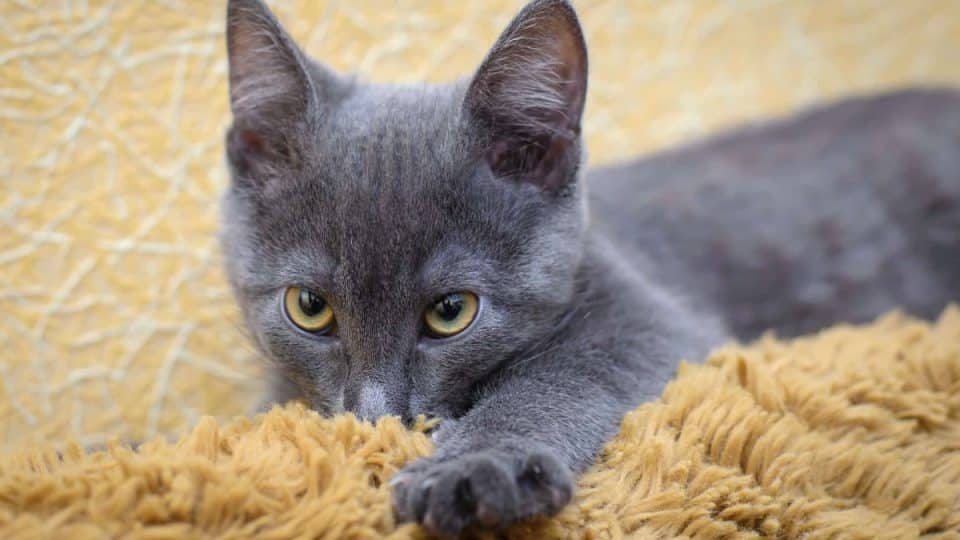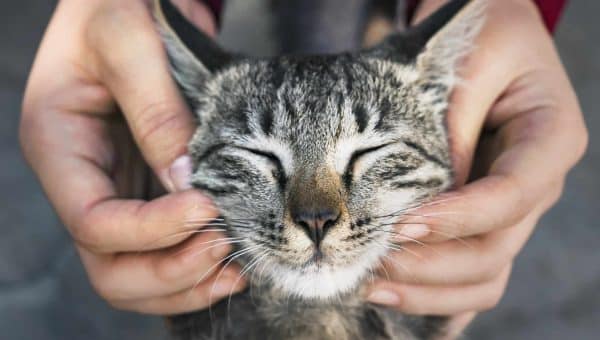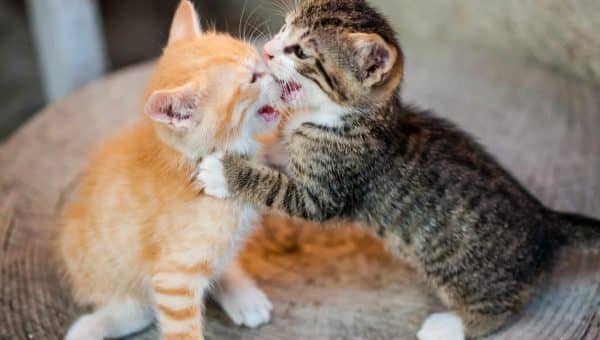- Not a substitute for professional veterinary help.
Cats are known for quirky behaviors that leave us befuddled, from counter-hopping antics to knocking things over. One of the stranger behaviors you might’ve encountered is blanket sucking. Pet parents wondering why their cat sucks on blankets are not alone. While it seems odd, blanket suckling is common in cats, primarily kittens. This behavior is a form of self-soothing when they’d like to calm themselves or relax.
Although it’s harmless, blanket sucking could be a cat’s way of telling you they’re seeking comfort over stress or pain. Janet Cutler, Certified Cat Behaviorist at Cat World, says pet parents should discourage blanket sucking if it’s causing health problems, such as their cat ingesting some of the blankets they’re sucking on. However, she says if the blanket sucking isn’t negatively affecting their health, there’s no need for pet parents to worry. Cutler adds that sometimes if cats aren’t allowed to suck blankets, it could be even more stressful; pet parents should work closely with a vet or cat behaviorist to discourage the behavior if necessary.
4 Reasons Why Your Cat Sucks on Blankets
A cat sucks a blanket like a human baby sucks their thumb. Sucking is a natural reflex for human and animal infants that provides comfort. This instinct, along with kneading, is characteristic of kittenhood.
Stress and anxiety can trigger compulsive behaviors in cats, such as excessive grooming, sucking or chewing on nonfood items (aka pica), and self-directed aggression.
Some specific causes of blanket sucking include the following.
- A change in environment or territory. “Changing environments is stressful, and if your cat is prone to anxiety, these changes can make it worse,” Cutler says.
- Introduction to another animal or child in their space they don’t like. Cutler says introducing your cat to new people or pets can stress them out and lead them to blanket sucking.
- Genetics. Some studies show cat breeds like the Siamese and Burmese are likelier to suck blankets.
- Feeding patterns. Cutler says free-fed cats may be less likely to show wool-sucking behavior.

iStock/Olena Ivanova
Where Did Blanket Sucking Come From?
Blanket sucking can be traced back to kittenhood. During this stage, kittens need their mother’s milk filled with vital nutrients. Thus, the instinctual behavior of sucking can make cats feel content, safe, and secure. Cats may also purr when they suck blankets since it can remind them of their mother and littermates.
Stephen Quandt, certified feline training and behavior specialist and founder of Cat Behavior Help, says blankets can be extra satisfying for cats because the fuzzy fabric is evocative of their mother’s fur.
Cutler adds that young animals suck to survive, but this is not typical in older animals.
Should I Worry If My Cat Sucks Blankets?
Blanket sucking is normal, so there’s no cause for concern if your cat does it. Typically, kittens will grow out of sucking on blankets once they’ve matured to about a year old. Sometimes, it can last into adulthood, depending on the cat.
Although, if your cat has suddenly started sucking on blankets, it may be a sign that chronic disease has flared up and is causing pain. Quandt says if your adult cats suddenly start suckling on blankets, it could indicate tooth pain or GI conditions; pet parents should contact a vet if the sudden suckling is alarming.
Can Blankets Hurt My Cat?
Most blankets are safe for cats to suck on. If your cat especially loves wool blankets, eating the material frequently could lead to digestive problems. Cutler adds that cats might also suck on cotton and synthetic materials.
Want to be extra cautious and find a cat-safe blanket for your compulsive blanket-sucker? Cutler says to ensure no strings or pieces could be accidentally sucked or chewed off. She also stresses that inspecting materials your cat sucks on frequently for damage is essential.

iStock/Jane Rubtsova
How to Soothe A Cat’s Anxiety (& Hopefully Reduce Blanket Sucking)
Quandt says a calming, quiet environment goes a long way to help a blanket-sucking cat. He adds that with anxious cats, pet parents should prioritize their cat’s comfort and suggests cozy cat caves, perches, climbing trees, or tunnels.
“The more we can simulate the interesting, outdoor world that cats evolved to inhabit, the happier they generally are,” he says.
Here are a few ways Cutler recommends the following to soothe an anxious cat.
- Give them a safe space to escape. “Having a few options for them can be helpful, including elevated spots where they can see what’s going on, but also having enclosed spaces available where they can feel safe,” she says.
- Provide mental stimulation and exercise. Cutler says to take time to play with your cat, provide food puzzles or activities, and work on training with them to help soothe chronic anxiety and stress.
- Reach out to your vet. If your cat is highly anxious, Cutler says to consult your vet about medications, supplements, or pheromones that might help.





